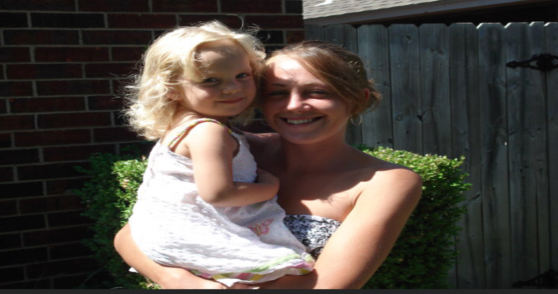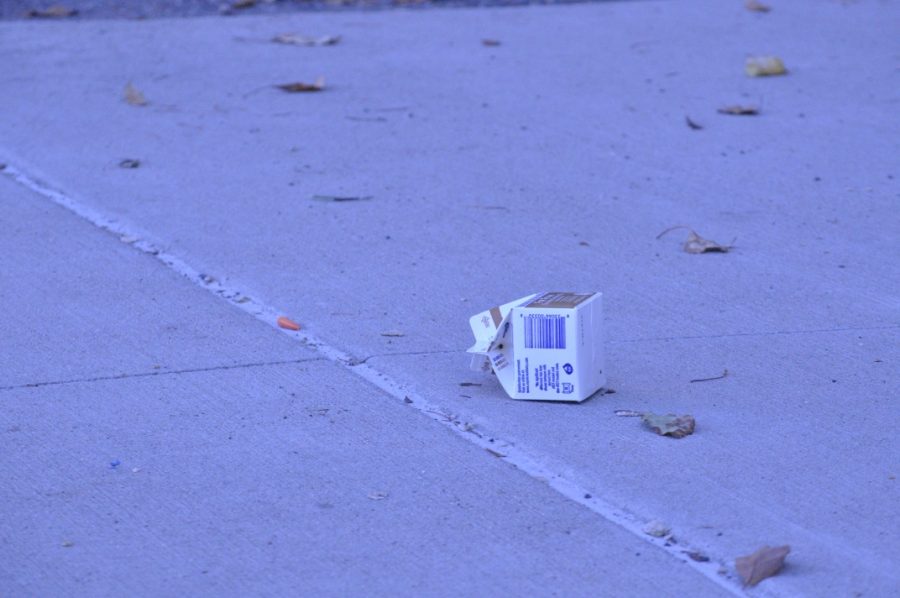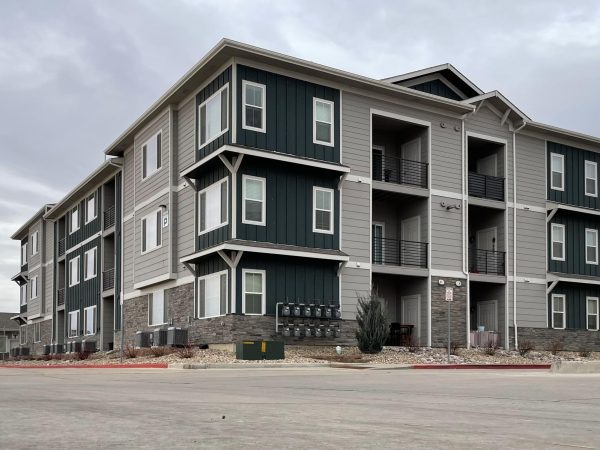Students are disregarding throwing away their trash
The MHS campus is littered with trash, even after several reminders against it
Outside the front of Mead High School, milk cartons and other hot lunch waste often pollute school grounds.
There is a serious littering problem here at Mead High. Trash is littered all over the school’s campus, and it never seems to go away. One might try to argue that high school students are lazy, and the accessibility to trash cans is too little. But from personal experience, students are leaving trash on the ground a couple of feet away from trash cans.
In an effort to help clean up the campus, National Honors Society (NHS) holds monthly clean-up days.
Ms. Sonnenberg, one of the teacher advisors of NHS said, “[The students] pick up a lot of trash… they always come back with full trash bags, even when we have a lot of kids.”
Though these clean up days do a lot for our campus, students have gotten so bad about littering that it’s sometimes not enough. A lack of care is the primary problem here at school, and Hannah Kearns (‘23) has witnessed this first hand.
“There was [a] kid, and he had thrown this little ball of cling wrap at the trash can, and he missed… He started to walk away, and I said, ‘Hey, would [you] mind throwing that away, you missed it,’… Then he walks over and picks it up, and tosses into the grass, opposite of the trash can,” said Kearns (‘23).
Principal Dr. Young has taken notice as well. According to Dr. Young, the reason Mead has such a problem with littering is because there are so many areas on campus where students are allowed to eat.
Dr. Young said, “Our campus is not designed to have students eat lunch in one area, but rather to have students eating all over the school campus both inside and outside. It makes it hard for the school staff to monitor every table at the end of the lunch period to ensure those areas are properly cleaned.”
Because of this, if students don’t throw away their trash, it often doesn’t get picked up at all. Dr. Young said if littering doesn’t improve, we might have to limit areas where students are allowed to eat to the commons, cafeteria, and outside the portables.
In addition, there is a wide misconception among students that the janitorial staff will pick up all of their trash.
When Kearns (‘23) saw a student so willingly litter, she asked them why. “I got up and I went over to his table… I asked him, ‘Why would you throw your trash in the grass, don’t you see how much trash is already everywhere?’ He was saying to me, ‘No, why would I throw that away, there are people who get paid to pick that up,’” she said.
Evidently, as students, the power to keep our campus clean is in our hands. Though our janitorial staff does a wonderful job, we cannot expect them to pick up every last piece of trash. Most often, the only thing high school students will listen to is their friends.
Dr. Young, after many years in public education, understands this. He said, “Nothing is more powerful than when a peer asks for help or reminds you to make a good choice. I think the best way to keep our campus clean is for each and every student to do their part and remind their peers to clean up after themselves or not be afraid to pick up a mess, even if it isn’t theirs.”
Your donation will support the student journalists of Mead High School. Your contribution will allow us to purchase equipment and cover our annual website hosting costs.

Natalie is a senior, and though this is her second year on The Mav, it is her first year as Copy and Design Editor. She enjoys painting, watching movies, and reading. She aims to further improve her writing and learn new elements of journalism this year.











